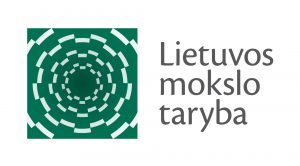Empowering societal resilience by uncovering the mechanism behind the link between eco-anxiety and environmentally friendly consumption, No. P-VIS-23-8

Project No. P-VIS-23-8
Project title: „Empowering societal resilience by uncovering the mechanism behind the link between eco-anxiety and environmentally friendly consumption”
Project duration: from 2023-09-01 to 2026-06-30
Project manager: dr. Rita Žukauskienė
Aim of the project: The aim of this research is to empower societal resilience by uncovering the mechanism behind the link between ecological anxiety and environmentally friendly consumption. To achieve this goal, two samples are planned: a representative sample of the Lithuanian population and a convenience sample of young adults (18-29 years old). In the representative sample of the Lithuanian population, we aim to investigate the prevalence and expression of environmental anxiety in Lithuania. In a sample of young adults, we will analyse the mechanisms through which ecological anxiety (de)motivates behaviours aimed at mitigating the ecological crisis, such as environmentally friendly consumption. We will analyse the links between personal (e.g. values, resilience, coping strategies), interpersonal (e.g. social norms, support) and economic and demographic (e.g. gender, age, financial status) factors with ecological anxiety and environmentally friendly consumption. The analysis of these factors will help to shed light on the mechanisms by which environmental anxiety manifests itself and how it (de)motivates environmentally friendly consumption. The study will provide unique insights relevant to the Lithuanian context. Knowledge about the link between environmental anxiety and environmentally friendly consumption is needed because consumption is the most easily achievable environmentally friendly behaviour that can be easily changed by interventions, but this link has not been systematically studied either in Lithuania or globally. This knowledge will contribute to the formulation of recommendations for interventions to increase societal resilience for policy makers, mental health professionals, the public and other stakeholders.
Funding was provided by the Lithuanian Research Council (LMTLT), contract No S-VIS-23-9.